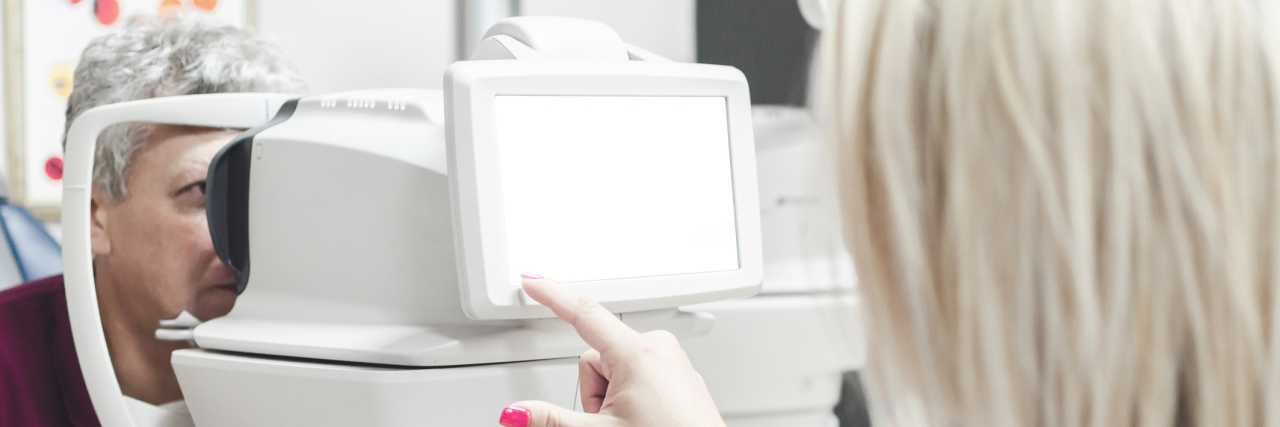Currently, there is no singular test that can diagnose Alzheimer’s disease. Doctors use a combination of medical history review, physical exam, neurological exam, “mental status” test and brain imaging to make the diagnosis. However, a new study suggests that one day, an eye test may be able to indicate the presence of the disease.
In a study published in the journal Ophthalmology Retina on Monday, researchers from Duke Eye Center looked at microscopic blood vessels found at the back of the eye inside the retina. They compared the density and thickness of these blood vessels in 133 healthy individuals, 37 people with mild cognitive impairment (sometimes a precursor to Alzheimer’s disease) and 39 people with Alzheimer’s disease.
Researchers found a statistically significant difference in density and thickness of the vessels between the people with Alzheimer’s disease and the healthy and mild cognitive impairment groups. The vessels of people with Alzheimer’s disease were less dense and less thick, even when controlling for age, sex and level of education.
Researchers chose to study blood vessels in the eye because previous research has shown that small blood vessels in the brain change in people with Alzheimer’s disease. Since the retina is considered an “extension” of the brain because it sends signals to the optic nerve to create visual images, they wanted to see if similar blood vessel changes would occur in the eye.
“It’s possible that these changes in blood vessel density in the retina could mirror what’s going on in the tiny blood vessels in the brain, perhaps before we are able to detect any changes in cognition,” Sharon Fekrat, MD, the study’s senior author, said in a Duke Health news release.
Researchers obtained data from study participants by using optical coherence tomography angiography, a non-invasive scan that can pick up on blood flow in the retina.
There is no cure for Alzheimer’s disease, but early detection can help patients receive treatments that may lesson the symptoms, determine eligibility for clinical trials and have more time to plan for the future.
If you’re coping with an Alzheimer’s diagnosis, you’re not alone. You might be able to relate to these 13 things people affected by Alzheimer’s disease want others to learn.
Getty photo by RobertoDavid

